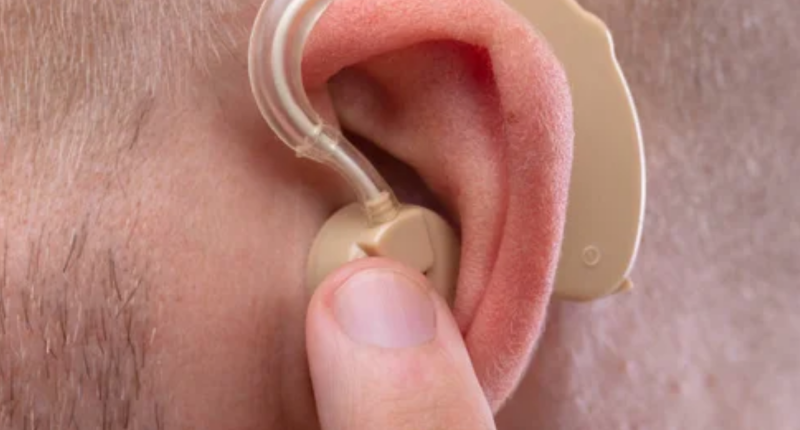What insurance covers hearing aids for seniors? Some insurance providers offer coverage for hearing aids for seniors. Aetna, Blue Cross Blue Shield, Cigna, Humana, and United Healthcare are among the companies that offer certain hearing aid benefits, but the coverage varies depending on the medical condition and state of residence of the individual. Additionally, some private insurance providers, such as UnitedHealthcare, may also offer coverage for hearing aids. However, it’s important to check with the specific insurance provider to understand the extent of the coverage and any associated costs. Medicare, unfortunately, does not offer much coverage for hearing aids, but supplemental insurance or Medicare Advantage plans may provide some coverage. It’s recommended to review individual insurance plans to understand the specific coverage for hearing aids.
What Is the cost of hearing aids without Insurance Coverage?
The cost of hearing aids without insurance coverage can vary significantly, depending on factors such as the type of hearing aid, brand, and included features. On average, a pair of hearing aids can range from $900 to over $6,000.
Some key points to consider when purchasing hearing aids without insurance coverage include:
Type of hearing aid: There are several styles of hearing aids, such as behind-the-ear (BTE), in-the-ear (ITE), in-the-canal (ITC), and completely-in-the-canal (CIC).
The cost of hearing aids can vary depending on the style and technology level.
Brand and features: The cost of hearing aids can also depend on the brand and the features included, such as customization, app-controlled sound personalization, and extended warranty.
Discount retailers and payment plans: Some discount retailers, payment plans, and healthcare credit options may help you handle the cost if you need to pay the full price out of pocket.
Over-the-counter (OTC) hearing aids: In August 2022, the U.S. Food and Drug Administration (FDA) created a new category of OTC hearing aids for adults with mild to moderate hearing loss, which are available without a medical exam, prescription, or fitting by an audiologist or other hearing professional.
These OTC devices may be more affordable than prescription hearing aids.
It’s essential to research and compare different hearing aid options to find the best fit for your needs and budget. Additionally, you can check with your private insurance provider to see if they offer any coverage or discounts for hearing aids.
What is the difference between premium and basic hearing aids?
The main differences between premium and basic hearing aids lie in their technology levels, features, and performance. Here are some key differences between the two:
Premium Hearing Aids:
- Better noise reduction and sound processing algorithms
- More precise programming and customization
- Enhanced wind noise reduction and better directional microphones
- More advanced features, such as app-controlled sound personalization and extended warranties
- More channels for finely tuning the hearing aid to your specific hearing loss needs
- Automatic switching between different programs
Basic Hearing Aids:
- Less advanced noise reduction and sound processing algorithms
- Less precise programming and customization
- Fewer features and less advanced technology
- Fewer channels for fine-tuning the hearing aid
- Manual switching between different programs.
Premium hearing aids generally offer better performance and more advanced features, making them more suitable for individuals with more complex hearing needs. Basic hearing aids, on the other hand, are more affordable and may be sufficient for individuals with mild to moderate hearing loss.
It’s essential to consult with a hearing care professional to determine the best hearing aid technology level for your specific needs and budget.
What are the extra features that come with premium hearing aids?
Premium hearing aids come with several extra features that are not available in basic hearing aids. Some of the extra features that come with premium hearing aids include:
- Binaural processing: Premium hearing aids share the greatest amount of information wirelessly in real-time between the two instruments, which helps to improve speech separation from other sounds and unmatched ability to tell where the sounds are coming from.
- More precise programming and customization: Premium hearing aids can be adjusted more specifically to fit your hearing loss, and they offer more bands of adjustment.
- Better noise reduction and sound processing algorithms: Premium hearing aids have better noise reduction and sound processing algorithms, which help to reduce background noise and enhance speech understanding in soft background noise.
- Enhanced wind noise reduction and better directional microphones: Premium hearing aids come with special features to increase listening comfort in noisy environments, such as enhanced wind noise reduction and better directional microphones.
- More advanced features: Premium hearing aids have more advanced features, such as app-controlled sound personalization, automatic switching between different programs, and extended warranties.
- More channels: Premium hearing aids have more channels for finely tuning the hearing aid to your specific hearing loss needs.
- More automatic features: Premium hearing aids have more automatic features, such as the ability to automatically adjust to different environments and put you into better program settings.
It’s important to consult with a hearing care professional to determine the best hearing aid technology level and features for your specific needs and budget.
Are there any downsides to choosing premium hearing aids over basic ones?
There are a few downsides to choosing premium hearing aids over basic ones:
- Higher cost: Premium hearing aids are more expensive than basic hearing aids, which can be a significant barrier for some individuals.
- More complex features: Premium hearing aids come with more advanced features, which may be overwhelming for some users and require more time to learn and adjust to.
- Potential over-customization: While premium hearing aids offer more precise programming and customization, this can sometimes lead to over-customization, which may not be necessary for all users.
- Potential for unnecessary features: Some users may not need or benefit from all the advanced features offered by premium hearing aids, which can result in unnecessary costs.
It’s essential to consult with a hearing care professional to determine the best hearing aid technology level and features for your specific needs and budget. They can help you weigh the pros and cons of premium hearing aids and ensure that you’re getting the most appropriate and cost-effective solution for your hearing needs.
ALSO READ: Natural Anxiety Relief: The Power of Liposomal Magnesium








